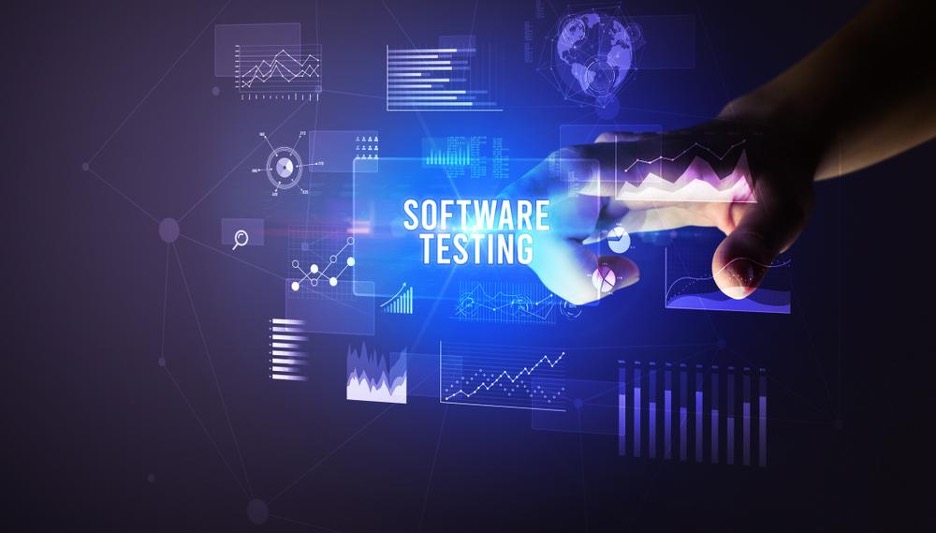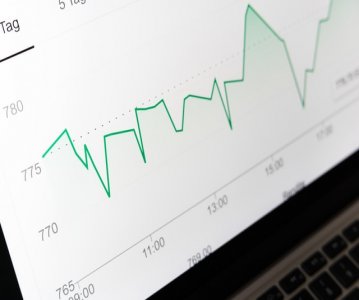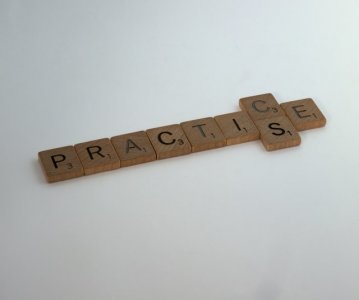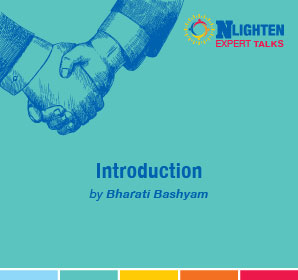This article is about Digital Marketing
Top 12 SEO Skills Every Marketer Should Have
By NIIT Editorial
Published on 04/06/2023
SEO, or Search Engine Optimisation, optimises websites and content for search engine results pages (SERPs). It entails using search engine algorithms-aligned practises to increase organic traffic and relevant website visits. SEO includes keyword research, on-page optimisation, off-page optimisation, content production, and technological optimisations to improve a website's online presence and search engine visibility.
Businesses, marketers, and website owners need SEO abilities in today's competitive internet environment. Here's why:
- Search engines initiate most online encounters. SEO abilities help you rank higher in search results and reach more prospective consumers.
- Organic traffic comes from unpaid search engine results. By optimising your website's structure, content, and keywords for user search intent, SEO skills may boost organic traffic. Organic traffic converts better and engages with your business more.
- SEO is cheaper than sponsored advertising. Improved organic rankings take time and work, but they may lead to continuous traffic and brand exposure without advertising expenses.
- SEO optimized website loading speed, mobile-friendliness, and user experience. SEO skills may boost user engagement, website visit duration, and conversion rates by concentrating on these areas.
- SEO may provide you an edge in competitive sectors. By keeping up with SEO trends, you may outrank rivals, increase traffic, and become a niche leader.
This blog will explore SEO principles, techniques, and tools. Keyword research, on-page optimisation, backlink analysis, rank tracking, and content optimisation are vital. We'll also display the best SEO automation tools in each area and emphasise their usefulness. This blog will assist company owners, digital marketers, and internet marketers understand SEO and improve search engine rankings. Let's unleash SEO's power together!
Table of Contents:
- Technical SEO Skills
- On-Page SEO Skills
- Off-Page SEO Skills
- Analytical SEO Skills
- Local SEO Skills
- Conclusion
Technical SEO Skills
When it comes to search engine rankings, technical SEO is concerned with the behind-the-scenes workings of a website. It entails fine-tuning the site's framework, code, and server configurations so that search engines can efficiently crawl, index, and interpret the site's content. Technical SEO is essential for enhancing a website's discoverability, usability, and search engine rankings.
1. Understanding and Optimizing Site Speed
Fast loading times are essential for both visitors and search engine rankings. A website's bounce rate and search engine ranking may both increase if it takes too long to load. Learn how to reduce code, compress pictures, activate browser caching, and optimise server response time to increase site performance. Google's PageSpeed Insights and GTmetrix are just two of the many performance testing and optimisation tools available.
2. Implementing Structured Data
Structured data, sometimes called schema markup, is a standardised format for providing search engines with more information about the content of a website. Implementing structured data improves search engine comprehension and allows for the inclusion of rich snippets in SERPs, such as star ratings, user reviews, and product information. Technical search engine optimisation necessitates familiarity with the use of structured data implementations like JSON-LD and microdata.
3. Optimizing for Mobile Devices
As mobile internet use rises, so does the need of making websites mobile-friendly. Websites that have been optimised for mobile usage not only give a better experience for mobile visitors, but also perform better in mobile search engine results. Technical SEO requires expertise in responsive design strategies, mobile website load speed optimisation, and the implementation of mobile-friendly features like touch-friendly buttons and simple navigation.
Resources to Improve Technical SEO Skills:
- Google's Webmaster Central Blog:
Keep up with the newest SEO news, rules, and best practises by reading Google's Webmaster Central Blog. It comprises articles written by Google specialists and gives insight into technical SEO subjects.
The technical components of SEO discussed in this blog are extensive. These include things like increasing site performance, using structured data, and optimising for mobile devices.
- Moz Academy:
When it comes to search engine optimisation, Moz Academy has you covered with in-depth online classes covering topics including technical SEO. Optimisation for speed, structured data, mobile search engine optimisation, and technical site audits are just some of the subjects covered in their courses.
The courses are meant to improve technical SEO abilities by providing in-depth information, practical insights, and actionable advice.
- Search Engine Land:
If you're looking for an authoritative magazine on search engine optimisation (SEO) news, trends, and insights, go no further than Search Engine Land. Their articles, tips, and tutorials are excellent resources for learning technical SEO abilities.
You can keep up with the ever-changing world of technical SEO thanks to the journal, which routinely offers expert perspectives, case studies, and updates on changes to search engine algorithms.
On-Page SEO Skills
Increasing a page's visibility and search engine results page (SERP) rating is the goal of on-page SEO. Aligning a webpage's internal features with search engine algorithms and user intent. Optimising a page's search engine visibility and organic traffic via on-page SEO means focusing on elements like content relevancy, keyword use, meta tags, and user experience.
1. Conducting Keyword Research
In on-page SEO, keyword research is a must. Keyword research is the process of determining which words and phrases people use while looking for information online. Understanding search volume, competitiveness, and user intent via keyword research enables you to carefully optimise your content for better search engine rankings.
2. Writing High-Quality Content
For on-page SEO, creating high-quality content is essential. You can attract and keep visitors while establishing your authority in your field if the information you provide is useful, instructive, and interesting. Optimising on-page content includes learning how to produce attention-grabbing headlines, organising text for easy reading, organically inserting important keywords, and using correct formatting approaches.
3. Optimizing Title Tags and Meta Descriptions
Search engines use HTML elements called title tags and meta descriptions to create short summaries of a page's content. Click-through rates and organic traffic may be dramatically improved by optimising these components with relevant keywords, engaging descriptions, and clear calls to action. If you want your website to rank higher in search results and get more clicks, you need to learn how to write engaging title tags and meta descriptions.
Resources to Improve On-Page SEO Skills:
- Yoast SEO Blog:
If you're interested in improving your website's on-page SEO, you should check out the Yoast SEO Blog. Yoast is a widely used search engine optimisation (SEO) plugin for WordPress websites, and its blog has extensive information on optimising individual web pages.
They provide helpful advice, guides, and tutorials on how to do keyword research, optimise content, create title tags, meta descriptions, and more.
- SEMrush Academy:
Free SEO training, including on-page optimisation, is available from SEMrush Academy. Keyword analysis, content development, and technical SEO are only some of the subjects covered in their training programmes.
Their on-page SEO courses will teach you all you need to know to increase the visibility of your website in search engines.
- Ahrefs Blog:
On-page optimisation is only one of several SEO-related issues covered in depth by Ahrefs, a widely used SEO tool. You may use the information in their publications to better understand and implement content optimisation, keyword research, and on-page element improvements.
Learning the most recent on-page SEO strategies is simple when you consult their blog.
Off-Page SEO Skills
When you undertake tasks away from your website, such as link building or social media promotion, you are increasing your site's authority and exposure to search engines. Backlinks, social media activity, online mentions, and local search engine optimisation are all examples of external aspects that need to be optimised. When done properly, off-page SEO may do wonders for your site's authority, referral traffic, and signals to search engines.
1. Building High-Quality Backlinks
To put it simply, backlinks are links on other websites that lead back to your own. Off-page SEO relies heavily on the creation of high-value inbound links. It is essential to learn how to get backlinks from high-quality websites using means such as guest blogging, content outreach, and relationship development. Not only can high-quality inbound links increase organic traffic from search engines, but they also demonstrate to users that your site is trustworthy and useful.
2. Developing a Social Media Presence
Off-page SEO strategies should make use of social media networks. Social networking helps you to reach a wider audience, interact with that audience, and drive more traffic to your site. Your off-site search engine optimisation (SEO) activities will benefit from your knowledge of social media profile optimisation, content creation, and follower engagement.
3. Utilizing Local SEO Tactics
Local search engine optimisation is crucial if your company is based in a particular location or serves a limited geographic area. Your local exposure and ability to attract relevant clients may be greatly improved by learning how to optimise your website for local search results. This includes, but is not limited to, generating and optimising Google My Business listings, gaining online reviews, and targeting location-specific keywords.
Resources to Improve Off-Page SEO Skills:
- Backlinko:
Brian Dean created Backlinko to fill the need in the market for off-page SEO and link building education. The site covers topics like getting quality backlinks, outreach methods, and authority development in detail with guidelines, case studies, and helpful advice. It provides practical advice and methods for boosting your off-site SEO efforts.
- Neil Patel's Blog:
In addition to on-page SEO, Neil Patel's blog discusses many other aspects of digital marketing. The site provides helpful advice on improving search engine rankings using off-page optimisation practises including link building, social media marketing, and more.
Because of Neil Patel's extensive knowledge and experience in the field, his blog is an excellent tool for honing off-page SEO strategies.
- Search Engine Journal:
If you're looking for an authoritative source that keeps you abreast of SEO developments, go no further than Search Engine Journal. Articles, guidelines, and interviews with SEO professionals are all available here. It explains how to optimise your social media profiles, use local SEO strategies, and more.
Analytical SEO Skills
To improve your website's search engine rankings, you might use analytical SEO techniques such as measuring, analysing, and optimising utilising data and analytics. Data-driven SEO is an approach that emphasises the collection and analysis of user behaviour, website traffic, conversion rates, and other vital metrics. Through the use of analytical SEO, you may learn about your website's performance, identify problem areas, and enhance your SEO strategies.
1. Setting up and Using Google Analytics
The performance of your website may be monitored and analysed with the help of Google Analytics. Tracking website traffic, watching user behaviour, measuring conversions, and gaining vital data for SEO research all need familiarity with Google Analytics and its user interface. You can gauge the success of your SEO efforts by keeping tabs on important indicators like the number of sessions, the percentage of visitors that bounce, the average time spent per session, and the number of conversions.
2. Conducting A/B Testing
In A/B testing, sometimes called split testing, two variants of a page or other element are put up against one another to see which one generates more interest from visitors and leads to more sales. You may improve your SEO tactics by using data-driven inferences gained from doing A/B testing, defining hypotheses, monitoring metrics, and interpreting outcomes. Better SEO results may be achieved via the use of A/B testing to optimise page designs, CTA placement, headlines, and other factors.
3. Measuring and Analyzing Key Performance Indicators (KPIs)
The effectiveness of your SEO efforts can only be gauged by identifying and monitoring relevant KPIs. Metrics like organic traffic, keyword ranks, conversion rates, and money gained through organic search are all examples of KPIs. You may improve your SEO strategy and show the value of SEO to your company if you know how to set up KPI monitoring, understand data patterns, and make data-driven choices based on KPI analysis.
Resources to Improve Analytical SEO Skills:
- Google Analytics Academy:
To help you get the most out of Google Analytics, they provide a free online learning centre called the Google Analytics Academy. From installation and navigation to more complex features and analytical methods, the courses cover it everything.
You may improve your analytical SEO abilities and learn more about using Google Analytics data for optimisation by taking one of these courses.
- HubSpot Academy:
HubSpot Academy provides several inbound marketing-related courses, such as reporting and analytics. Measurement framework construction, website performance analysis, and the use of marketing analytics data are all covered in detail.
By taking these classes, you may understand the fundamentals of analytical SEO and acquire the skills necessary to successfully measure and analyse SEO data.
- ConversionXL:
ConversionXL is a trusted platform for analytics and optimisation of user conversions. Measure and analyse SEO effectiveness, do A/B testing, and comprehend user behaviour with the help of their blog and resources.
You may improve your analytical SEO abilities by studying their material and picking some useful tips and tricks.
Local SEO Skills
The goal of local search engine optimization is to increase website traffic from a defined geographic region. Its purpose is to boost your rankings in "near me" and other location-based search results by incorporating geographical data into your website and social media accounts. Local search engine optimization is crucial for brick-and-mortar companies that depend on local clientele and wish to increase foot traffic. Methods like local citation development, localised content strategies, and enhanced Google My Business profiles are all part of this process.
1. Creating and Optimizing Google My Business Profiles
Manage your company's online visibility, especially in Google Maps and local search results, using Google's free service, Google My Business (GMB). You may boost your local search visibility and increase your chances of showing in the "Local Pack" results by learning how to develop and optimise GMB profiles, such as by giving correct company information, choosing relevant categories, adding photographs, and promoting user reviews.
2. Building Local Citations and Directories
References to your company's NAP (name, address, and phone number) in other internet resources are known as local citations. Having your company included in a wide variety of directories with consistent and correct information helps build its credibility and sends a signal to search engines that it is a reputable local institution. The success of your local SEO campaign may be improved by learning where and how to submit your company information, as well as how to efficiently maintain your citations.
3. Implementing Localized Content Strategies
If you want to rank well for search terms that people in your target market are really using, you need to create content that is specific to that market. Implementing localised content tactics includes learning to use location-based keywords, developing landing pages for particular geographic areas, writing about specific local themes in a blog, and emphasising unique local events or collaborations. Local search engine optimization (SEO) and customer acquisition both benefit from content that is specifically designed for a certain geographic area.
Resources to Improve Local SEO Skills:
- Whitespark:
Whitespark provides several options for local search engine optimisation (SEO) tools and resources for companies. All aspects of a Google My Business profile and local search visibility may be improved with the use of their citation building services, local rank monitoring tools, and in-depth tutorials. If you want to learn more about local SEO, exploring Whitespark's resources will help.
- Local SEO Guide:
If you're looking for reliable information and resources on local search engine optimization, go no further than Local SEO Guide. Google My Business optimization, local link development, and citation management are just a few of the local SEO topics covered in-depth on their site. Reading their articles will keep you abreast of the most recent developments in local SEO.
- BrightLocal:
When it comes to local search engine optimisation, BrightLocal has you covered with a full range of tools and resources. Local citation construction, review tracking, and ranking monitoring are just some of the features offered.
Local search ranking criteria, reputation management, and Google My Business optimization are just a few of the areas covered in the reports and advice they provide to the business community. If you use BrightLocal's tools, you can learn more about local SEO and put more of your knowledge into practice.
Conclusion
Having solid SEO abilities is essential for success in today's digital world, both personally and professionally. You may boost your website's exposure, increase your organic traffic, and more effectively communicate with your target audience by learning SEO techniques. You can boost your online visibility, expand your brand's reach, and attract more paying customers if you learn and use search engine optimisation strategies.
Technical search engine optimization, on-page optimisation, off-page tactics, analytical insights, and local search engine optimisation are all essential to the success of your website in the digital world.
Competencies in search engine optimization (SEO) are not only important but also constantly developing. Learning and adjusting on the go is essential due to the dynamic nature of search engine algorithms and upgrades. Competing in today's market requires an understanding of SEO and a commitment to continuous learning. You can set yourself apart from the competition as a savvy professional or successful company by devoting time and energy to studying and enhancing your SEO abilities.
We highly recommend enrolling in a digital marketing course if you're serious about improving your SEO abilities and being competitive in the industry. You'll get vital insights, practical knowledge, and hands-on experience in all facets of SEO thanks to the instruction you'll receive in these courses.
You may learn from professionals who have mastered SEO by taking a course in digital marketing and expanding your knowledge of SEO methods and technologies. Don't pass up the chance to advance your profession or company by learning new skills.
Never stop studying; SEO is an ever-evolving industry. You may boost your online presence, your organic traffic, and the results of your digital marketing efforts by investing in your SEO expertise. Start your quest to become an SEO expert by enrolling in a digital marketing school right now. Learn how to adapt to the ever-changing world of search engine optimisation (SEO) and get significant results for your website or company.

















































































































































































































































































































































































































































































